You can follow up and study the basic and advanced training in the field of hospitality industry management.

Before the pandemic, hotel brands were at a crossroads with increasingly brand agnostic consumers and ever-expanding brand portfolios. But there is evidence that the pandemic may have led to consumers’ renewed appreciation for a well-recognized brand name that assures quality and instills trust. This change in consumer behavior will impact brand management strategies in several significant ways. De-emphasizing brand-proliferation strategiesIn 2010, room demand jumped 6.5% as the industry emerged from a recession. This marked the beginning of a decade-long, demand-fueled brand proliferation that now provides over 1,000 hotel brands for travelers according to STR. Underpinning the surge in brand options are segmentation and brand portfolio strategies. Segmentation allows hoteliers to take a diverse traveler population and organize it into homogeneous groups (e.g., business, staycation) (Kotler et al., 2017). Brand portfolio refers to a “house of brands” approach which incorporates the corporate brand and any number of secondary or subsidiary brands (Muzellec & Lambkin, 2009). Both strategies contributed to the proliferation of new brands that were largely targeting the millennial segment and catering to their desires for work-life balance, authenticity and technology. When people are ready to travel again, their needs might become more homogeneous as their accommodation choices will mostly be based on cleanliness and safety. Moreover, the expectation of a slow recovery in economic activities coupled with a synchronized global recession suggest that rooms demand, which STR forecasts to drop by 51.2% this year, will not return to previous levels anytime soon, let alone grow. Taken together, segmentation to find new niche and a “house of brands” approach to capture excess demand will be less important in the hospitality brand management discussion. Emphasizing brand authenticitySince the pandemic disrupted current and future travel on an unprecedented scale, it may well have reminded consumers of the value of a brand. In fact, a recent IDC survey of over 1,500 U.S. consumers revealed that travelers will be more likely to seek out brand name and four-star or above hotels for assurance when they travel again. This represents an opportunity for hotel brands to reconnect with the public with better defined brand value that goes beyond the rooms and service offerings. One such strategy is authenticity branding. Brand authenticity (i.e., the extent to which a brand is “faithful toward itself, true to its consumers, motivated by caring and responsibility, and able to support consumers in being true to themselves,” Morhart et al., 2014, p.8) has been shown to help luxury hotel brands generate brand love as well as improve business performance (Manthiou et al., 2018). It encompasses not only the traditional hospitality value to genuinely care for others but also modern relationship and cause marketing theories (e.g., corporate social responsibility) to foster meaningful engagement with consumers and various stakeholders. The new generation of hospitality leaders need to grasp the concept of brand authenticity to rise above the current crisis and take the industry to a more sustainable, brand-driven future. Human-technology interaction theories to strengthen brand identityHoteliers had shown reluctance in adopting technology in the past, partly due to high costs, but mostly due to the lukewarm reception (e.g., low usage of loyalty app, perceived low performance of service robots) from consumers who demand a personal touch. But social distancing, online ordering, curbside pickup, and other measures implemented during the pandemic have accustomed consumers to contactless consumption. Many hoteliers (e.g., Hilton) see contactless technology, such as mobile check-in and payment, as necessary standards post-pandemic (Wroten, 2020). Using AI and robotics to further reduce interpersonal contacts will likely be the next frontier to push to gain trust from the pandemic-stricken consumers and encourage them to travel again. The Westin Houston Medical Center hotel using robots in sanitizing and disinfecting its property is a case in point. The challenge for hotel brands is to meaningfully fuse technology (AI and robotics) into a hotel brand’s identity rather than simply use them in operational procedures (e.g., cleaning) that are typically undifferentiated across properties and brands. Theories pertaining to usability, aesthetics, and emotions in human-technology interactions (Wu, Fan, & Mattila, 2015) and how these interactions transpire in favorable brand associations will shed light on this technology branding endeavour for burgeoning hospitality leaders.
Create: Oct 27, 2021 Edit: Oct 27, 2021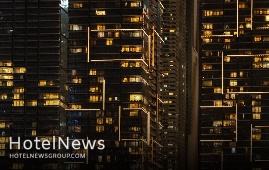
Recent weather disasters, social unrest and a heightened awareness of racial bias have prompted hoteliers to double down on their commitments to become better corporate citizens and do more to address environmental, social and governance (ESG) issues. These are moves toward a social good, sure, but also have ramifications on hotel company P&Ls. Marriott International, for one. It recently announced a commitment to reach net-zero emissions of greenhouse gases by 2050. The pledge follows the previous setting of goals by the massive global company to reduce single-use plastics, cut down on food waste by 50% and significantly amp up the diversity of suppliers, among other measures. InterContinental Hotels Group is another. Earlier this year it announced plans “to make a positive difference for our people, communities and planet over the next decade.” The company’s new commitments include a 15% “absolute reduction” of energy use and carbon emissions; a reduction of waste that will include the elimination of single-use items and a “prevent, donate, divert” plan for food waste; increased water conservation efforts; new programs to “improve the lives of 30 million people in our communities around the world” and, for employees, to “champion a diverse culture where everyone can thrive.” All of these measures benefit the public good and also have impact on a hotel’s ability to control expenses, particularly in regard to energy management. “Saving energy can—and will—impact profitability,” said Denise Naguib, VP of Sustainability and Supplier Diversity at Marriott. “For many properties, the second largest cost after labor is energy, and in some markets it actually supersedes labor, so this is a real cost that impacts the bottom line.” Energy By The Numbers Energy costs are mainly variable and there are ways to control this expense, which is of the moment now as the expense creeps back up. In U.S. hotels, the cost of electricity jumped to $4.31 in August on a per-available-room basis, compared to $3.35 in July 2020, according to HotStats data. Year-to-date August, hotels were paying $3.32 for energy, compared to $2.94 over the same period a year prior. Europe saw a similar rise, with August electricity at €6.26 compared to €8.26 in the same month last year, and €8.67 in the first eight months of this year compared to €8.26 in the same period a year ago. Small Steps, Big Rewards Operational changes large and small can help drive energy efficiency. “One of our hotels that had a high energy bill brought on an energy manager,” Naguib said. “That person found energy efficiencies and reduced the property’s energy bill by $1 million.” On a broader level, she added, properties need to empower engineers and others to find energy efficiencies, such as shutting a foyer light that’s kept on all day, deploying technology to regulate temperatures and electric usage throughout the space. Smart uses of food, such as saving the ends of vegetables for stews or making more scrambled eggs at the start of breakfast to avoid whipping up too many at the end of service, can have an impact. Energy purchasing decisions and the education of employees also can make a difference. That hands-on approach also can be used when working to make hoteliers’ purchasing choices more inclusive, Naguib said. “If any of our associates are working on RFPs or RFIs, we help them seek out diverse suppliers, such as women or minority-owned businesses. It adds more voices to the table for bidding opportunities.” Such shifts generate customer loyalty, IHG noted when it announced the company’s enhanced ESG policies.
Create: Oct 13, 2021 Edit: Oct 13, 2021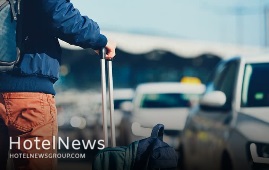
Coming out of the pandemic, guest demands have irreversibly changed. They don’t want cookie-cutter rooms; they want experiences. This harks back to the push over the previous decade to make our properties more ‘locally authentic’. Now, with lean teams and skeleton crews, the only way to effectively meet this demand is through technology.For the post-pandemic travel landscape, local authenticity means more than just a cursory immersion in the arts, culture and heritage of one’s locale. It also equals peace of mind because, in light of the residual anxiety over COVID-19, guests need to feel as though their specific requests are being handled.As a simple leisure scenario, picture yourself going on an international vacation with your loved one for the first time since the virus struck. You have all the new airport procedures to contend with. You’ve been wearing a mask for hours on end, which is inherently uncomfortable. And now you’re in a foreign city and country and don’t know what attractions and stores have reopened or what the local safety guidelines are, on top of a myriad of other questions that would require some digging online. Instead, wouldn’t it be great to know that your host hotel has your back the whole way?In the past, luxury brands have provided this kind of omniscience by deploying an army of staffers, but this model won’t jive in the post-pandemic, hyper-labor-efficient market conditions. Moreover, hotels must be proactive in the pre-arrival stage to ensure incoming guests have everything that they need and to make arrangements on their behalf. This sets the pace for a great onsite experience in lieu of the outdated ‘reactive’ process of waiting for guests to reach out to you with their inquiries. Done right, hotels can utilize integrated platforms and build a versatile CRM to connect the entire guest journey that also offers a clear counterargument to the largely self-serve nature of home-sharing accommodation providers such as Airbnb. Here are five ideas to help you incorporate this newfangled, full-service model. 1. Home-sharing platforms offer a direct, two-way messaging service with the accommodation host, and hotels must do the same. Brands should be using a chatbot to immediately respond to the simpler questions –which represent the majority of inquiries – then bouncing the more complex ones onto your front desk or concierge. Ditto for the voice channel where booking engines are available 24/7 and so too must your intake team be ready at all hours in order to win the business. 2. Speaking of booking engines, these should no longer be only for rooms, particularly if we want to continue to push guests towards our websites from the OTAs. Customers should be able to plan their entire trip itinerary from these portals, starting with dining reservations and spa appointments through to arrival amenities and perhaps a few ‘surprise and delight’ freebies such as their preferred, complimentary welcome refreshment or departure gift. With so much confusion about what’s open and what’s not, being an ambassador means guiding guests through this uncertainty as early in the customer journey as possible. 3. Physically getting to an accommodation booked through a home-sharing platform is mostly a laissez-faire ordeal. So, why can’t hotels offer bespoke, point-to-point guidance on transportation to and from the rail station or airport, as well as recommendations on how to get to the city or region? As a guest’s perception of your arrival experience can depend on the agony of how one arrives at the hotel, why leave this to chance? Besides better integrations to flight trackers so that you know exactly when your guests are expected to arrive, such innovations as autonomous vehicles are just around the corner, which could drastically bring down the costs of shuttle services. Grandiose for now, perhaps a present-day possibility would be a flight tracker integration so that you know when guests are expected to arrive and can be ready with a warm welcome. 4. The future of travel will be more purpose-driven. Namely, with so many anxiety-riddled barriers following COVID-19, guests will want to maximize their time while aboard. Planning a guest’s itinerary or making local recommendations has traditionally fallen under the purview of the concierge, but the time is right for building a ‘pick your own adventure’ program of bundled, turnkey half-day and full-day activities. This will require deeper integrations with third-party operators as well as a rethink of what onsite or offsite services are most meaningful for guests based upon their given travel purpose. For instance, a late-afternoon, post-meeting relaxation package with a whiskey tasting, revitalizing nosh and back massage will have vastly different appeal from a daylong sightseeing tour that includes timed entrances to exclusive local events. 5. The post-stay relationship is where home-sharing hosts are weakest. The platform does the brunt of this, focusing more on exploring new destinations rather than return visits. For hotels, traditionally the last interaction between guest and staff was often a checkout at the front desk where the final bill was confirmed, representing an emotionless, transactional touchpoint. Now with contactless checkout, hotels can transform this into a meaningful ‘thank you’ gesture followed by a series of one-to-one messages based upon what a guest utilized while onsite. With a fully integrated CRM, this messaging can be sentient insofar as knowing when to push for additional sales and when to simply keep past guests up to date on the latest happenings.
Create: Jul 28, 2021 Edit: Jul 28, 2021
Hospitality is built on the development and nurturing of personal relationships, extending beyond interactions with guests to include other hoteliers and even vendor partners. Hotel and resort owners and operators know that it’s not always enough to deliver positive results to customers, sometimes it’s more important to develop a connection with guests when providing service. This mentality can be a challenge for technology partners who have been conditioned by other industries to deliver results without emotion. However, company culture defines the way partners work together, and technology companies can learn a great deal from hospitality’s service-driven ethos. One thing hotel technology partners must be mindful of is the increasing complexity of software used throughout the industry. They should remain patient with operators who are stepping outside of their comfort zones to use technology they are unfamiliar with. Furthermore, many independent chains and boutique hotel groups operate without the benefit of an internal IT department, and for them, it is crucial that the technology supplier be a partner they can rely on to help solve problems in a collaborative and solution based approach. Here are four culture attributes a PMS company must possess to help ensure your hotel’s success: Be AdaptableThe service-oriented nature of hospitality creates an environment where many small-scale changes are taking place industrywide, from adapting to new guest booking patterns to creating new avenues for communication with travelers. In an environment like this, it is important for vendors to be open to receiving constructive criticism to improve service and make the most of current market conditions. Conducting business in the service arena requires some degree of humility, and sometimes well-intentioned efforts can backfire due to the way they were delivered, or other unforeseen factors. Receiving free feedback can be invaluable, whether it comes from an industry consultant or your hotel partners. Opening your offerings up to occasional scrutiny from those who use them every day can help provide inspiration to improve your products and services going forward, and even more effectively navigate your chosen business segment. Be AccessibleTech partners will always struggle with visibility due to the nature of the space they operate in, so it may be necessary to find ways to “walk the floor” with your customers the same way hotel GMs do. Since contact with hotel partners occurs most often when things have gone awry, the most efficient answer to this concern is for tech providers to make it easier for hoteliers to reach them. Direct text chat has seen runaway growth in popularity since the beginning of the pandemic, and it provides several benefits as a means of communication between hotels and tech partners. For one, tech chat allows users to be more deliberate with their messaging, reducing confusion in the long run. Additionally, all communications over text can be easily recorded and shared, helping with future technical issues and assisting with troubleshooting. Lastly, it is the ideal method for sharing e-learning materials, as users can retain them for long-term reference. Be ResourcefulKnowing your customer is everything, so why not consider hiring former hospitality workers for training and support roles? Your technical support personnel are more likely to help resolve customer issues in a reasonable manner if they walked a mile in their shoes. The hotel industry is currently going through a labor crisis, and it is important to make an immediate connection with hotel partners. Former revenue managers, salespeople, and GMs are perfect for these positions as they are fluent in hospitality lingo and already possess the service mindset to help other hoteliers find the solutions to their problems. Hospitality and technology are continually becoming intertwined, and connections such as these will be necessary to sustain future success as the level of complexity in a hotel’s day-to-day business continues to increase. Be HospitableHospitality employees are typically friendly, outgoing, likeable people. Many of them were attracted to hospitality for its focus on people, and the desire to provide a high-quality experience. They love solving problems and making others’ lives easier. Technology providers should strive for the same qualities in our own offerings. If, culturally, your organization’s people are pushing to do a better job every day to better serve customers, and go above and beyond when the opportunity presents itself, they are in the right place.
Create: Jun 9, 2021 Edit: Jun 9, 2021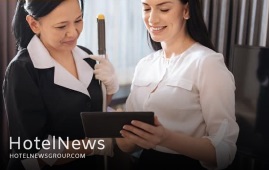
HNI, [۲۶.۰۵.۲۱ ۱۱:۴۱]Hotel technology exists to amplify, not burden, a hotel’s guest experience. Truly guest-centric technology should empower hoteliers to deliver their unique and ideal version of the guest experience. But great hotel technology should not only be guest-focused, it must also be management-focused, by helping hotels scale their business, and staff focused by facilitating operations, streamlining communications, and promoting employee productivity. In the face of a post-pandemic labor crunch, hotels need a mobile and guest-centric PMS to support a lean staff as they look to meet an uptick in travel demand. 2021 Will See the Hospitality Industry Roaring Back… But Hiring Still Lags BehindThe COVID-19 pandemic was devastating for hospitality, setting the industry back over 10 years in terms of occupancy and job losses. According to the ALHA, the pandemic cost the U.S. hospitality industry over 50% occupancy, and over 3.1 million jobs. The good news, however, is that the industry is on the verge of a major recovery. Rising vaccination rates, coupled with rapidly falling case numbers have led to an increase in confidence with the traveling public. According to Destination Analysts,confidence in travel safety is increasing, with over 61.8% of American respondents confident that the pandemic situation will continue to improve, and over 72% of the respondents making travel plans in the previous week. This rising optimism is being seen in job reports indicating that the hospitality sector gained over 331,000 jobs in April 2021 一 the sixth largest gain in the past 50 years. Unfortunately, these gains may not be enough. U.S. hotels are still 600,000 workers short of pre-pandemic levels, but workers don’t seem to be filling the vacancies. This can be attributed to a number of factors, including widespread health concerns, difficulty obtaining childcare, and the recent rise in federal unemployment benefits. The question for hotels is how can they leverage technology to support a lean staff, get new staff up to speed quickly, and help their current employees better engage with and serve their guests, without the burden of physical or technological constraints. PMS Technology Should be Intuitive, Mobile, and Unburden StaffHoteliers joined the hospitality industry because they delight in serving their guests 一 not because they wanted to fight with outdated technology. If hotels want to retain high-performing employees, they should invest in technology that actively empowers them to deliver an exceptional guest experience. What does it mean to have a staff-focused PMS? On the most basic level, PMS platforms should be intuitive and easy to use, and never burden employees when serving their guests. When technology is delivered through an intuitive user interface, hoteliers can spend less time buried in their screens, and more time actively engaging with their guests. Additionally, mobile & guest-centric PMS technology should promote maximum ease of access. Hoteliers should be able to manage their property from any location and device, giving them the freedom to move about the hotel and meet guests wherever they are. This allows staff to have more natural and personalized interactions with their guests, while also freeing any staff member, no matter their specific job title, to help any guest in any section of the hotel. Easy-to-Train On Systems Enable Hotels to Expand their Talent PoolPMS platforms should be easy to train on and easy to master. When technology is easier to understand, hotels can hire staff based on how they actually interact with guests 一 not how well they “get” outdated technology. When a new staff member is hired, it should be easier to train and onboard them to the new technology, thereby increasing adoption throughout your team. HNI, [۲۶.۰۵.۲۱ ۱۱:۴۱]When investing in new PMS technology, hoteliers should also explore what resources the vendor offers in terms of staff training and support. The right PMS technology vendor will view its relationship with its clients as a long-term strategic partnership, and will make sure its clients’ staff have the resources they need to get the most out of their product. Look for a dedicated implementation team, with the option for either in-person or remote implementation, as well as a dedicated client success manager (CSM), who can act as the customer’s voice within the organization. The right PMS vendor will provide robust self-training resources, including a comprehensive product knowledge base, on-demand e-learning courses, and best practice materials which demonstrate how to use the product to enhance the guest journey and operational efficiencies. Mobile Communication Can Streamline Operations and Improve Staff MoraleBreakdowns in team communication can easily lead to breakdowns in team morale. When hoteliers communicate with walkie-talkies and landline telephones, critical information can get lost in the shuffle, resulting in dissatisfied guests and frayed team dynamics. A mobile, guest-centric PMS can streamline staff and guest communications in a number of ways: Instant room updates automatically notify front desk staff when a room is ready or out of order, while analytic dashboards can keep your entire staff updated on key performance metrics. For more sophisticated forms of communication, native-cloud PMS systems can integrate with third-party guest messenger platforms. Guest messaging delivers seamless communication throughout the guest journey using common messaging platforms such as SMS, Facebook Messenger or WeChat. This allows guests to communicate instantly with staff through their mobile device, while also allowing staff members to serve multiple guests through multiple chat windows. Use Advanced Automation to Get the Most Out of a Limited Staf The hospitality industry is facing increased travel demand and heightened expectations for cleanliness and service, as it moves into the peak 2021 summer travel season. Unfortunately, they are still hampered by limitations in resources and staff size. By incorporating robust automation, a mobile PMS can help hotels get the most out of limited staff, while also freeing hoteliers from many of the mundane, repetitive tasks that take them away from their guests. A native-cloud PMS can automate simple but repetitive tasks such as room assignment, bulk check-in, and housekeeping task management. But it can also automate more advanced processes 一 like the entire check-in experience. Guests can have the option of checking in through their mobile device or a guest-facing smart kiosk. Mobile self check-in can not only streamline and personalize the check-in experience for guests, it can free hotel staff from engaging in repetitive and scripted dialogues during the check-in process. This self check-in option can also include automated targeted offers for amenities and room upgrades, giving the hotel an additional stream of ancillary revenue. Instead, they can focus on more natural and personalized interactions, like answering questions about dining options, or greeting guests with tea or champagne in the lobby. Great Technology Should Empower Great HoteliersIn order to succeed in the post-pandemic hospitality market, hotels have to deliver exceptional and personalized service on a limited staff. Therefore, it’s crucial that they invest in technology which is not only guest-centric but staff-centric as well. A mobile, guest-centric PMS delivers on both of these goals, by leveraging a system that is easy to use and easy to learn, while facilitating both staff communication and streamlined operations. Great technology should empower both hoteliers and their employees to deliver the best guest experience possible. And a guest-centric PMS can help them do just that.
Create: May 26, 2021 Edit: May 26, 2021
Predicting the return of corporate travel would be a cinch if foretelling the future was foolproof. No one, however, has that extraordinary prescience and even if they did, the future is, at best, murky. The continuing popularity of work-from-home arrangements, the COVID-19 induced reluctance of both individuals and companies to get back out on the road, and issues throughout the travel supply chain are all converging to create a less-than-hospitable environment for individual business travelers. “Before you get corporate travel back, you have to get people back to the office,” said Daniel Lesser, President and CEO of LW Hospitality Advisors. “It’s going to be a bit of a slog, at least until Labor Day.” Among the short-term problems, he continued, is airline flight capacity. “A lot of it will have to do with air lift. Carriers are being careful about yield management,” he said. However, Lesser added, “The summer is going to be phenomenal [for leisure travel] but the rubber will hit the road after in terms of group and corporate business.” Shifting BusinessLWHA’s COO and Principal Evan Weiss sees an even more dramatic delay on the horizon. “At the beginning, I thought the recovery would come first with leisure business, then leisure group, corporate transient and then corporate group,” he said. “But there’s been a paradigm shift. Companies now can cut back their travel by, for example, having two in-person board meetings and two on Zoom.” He continued, “After leisure, which is certainly back, we’re thinking corporate groups will be next to come back, and then corporate transient business.” That creates problems for hoteliers. In the U.S., the corporate average room rate in February 2020—the last full month before the coronavirus squeezed the life out of most of the global hotel industry—was $175.15. A year later, it stood at $111.03, down 35.6% year-over-year, according to HotStats data. In Europe, in February 2021, the corporate rate was €77.30, down 35.2% YOY. Meanwhile, in China, corporate travel didn’t have the dramatic swoon seen in other parts of the world. Its lowest point was in April 2020, when the corporate rate hit $65.65, a 24.8% YOY decline. As of April 2021, the $73.03 corporate rate was up 11.2% on the year prior, but still 16% lower than April 2019. The absence of corporate travel is equally disadvantageous since road warriors are typically higher-spending guests than their leisure counterparts. “Corporate folk pay at the last minute, then they book the Ritz-Carlton, and they’re often the ones who drink the most. If you lose that, it’s problematic,” Weiss said. But Chris Green, CEO of third-party management company Chesapeake Hospitality, has a rosier outlook on the return of corporate, framing it in the context of the domino effect. “Once a big player like Bank of America or Deloitte says ‘As long as you’re vaccinated and feel comfortable, you can travel,’ then it’s off to the races,” he said. “I believe companies will say ‘If you’re in a client-facing role, you have to get out there.’” Still, some timid travelers could remain skittish if they don’t feel safe and comfortable back at a hotel, Green noted, meaning properties must get the word out on the extraordinary efforts being taken to keep COVID-19 at bay. To do so, Chesapeake is “asking key questions about traveler confidence and experience and then using responses in sales and marketing presentations,” said Green. The company also is encouraging guests to share their experiences on travel-review sites. “We’re cleaner, safer and more sanitized than we’ve ever been,” Green said. “That needs to be the front-facing message because companies must feel certain that the hotels where they’re putting travelers are good citizens.”
Create: May 25, 2021 Edit: May 25, 2021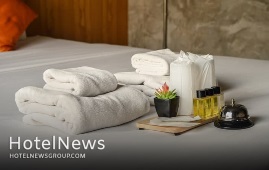
The concept we want you to remember is ‘post-COVID stress disorder’ (PCSD), inscribing those guests who are emerging from the pandemic, and most likely vaccinated, yet still have some lingering fears about travel and their exposure to the virus. To quell these doubts, and turn a buck while at it, consider the idea of merchandising spa and wellness products within the guestroom. As background, it’s important to note that with all the lockdowns of 2020 and repeated messaging about physical distancing and self-isolation, new habits have solidified and have caused many of us to become more introspective or introverted, even as we opt to set sail and explore the world once again. Thus, customers will expect hotels to respond to this behavioral shift with new amenities in the guestroom so that we can all still have a great hotel experience but without strictly relying upon access to onsite (and potentially high contact) facilities to achieve this. Indeed, most of the major brands are already seizing upon this in-room wellness trend, like Accor’s All Stay Well or Hyatt Together which are both on-demand content services offering a range of exercise, meditation, mobility, sleep or yoga routines, often through partnerships with leading players in the wellness space. What we emphasize here is that if the big chains are bolstering their brand standards in this regard, then you cannot allow your property to get left behind. The beauty therein is that wellness is such a catchall term these days that you can get as creative as your budget permits to build a unique interpretation. While you may not have the resources to put together a full-fledged app, this shouldn’t stop you from exploring your options. Get your team together; make it a fun brainstorming exercise. Here are some ideas: Onsite fitness, meditation or yoga calls, kept within the new guidelines for viral safety via clearly marked attendee floor circles, strict online booking for contact tracing and the option of a video alternative for those who want to remain in their rooms Basic exercise equipment like yoga mats, bands, roam rollers or light weights, available in the room or at request, and always disinfected prior to delivery Healthy foods with nutritional tidbits, available as a surprise-and-delight welcome amenity, as part of a rejuvenated room service program or in the minibar, again abiding by sanitization rules In-room aromatherapy, which can encompass flowers, allergen-free materials, essential oil diffusers or branded scents Anything else that can bring the calming experience of an onsite spa into the guestroom such as beauty product or grooming samples Personal wellness consultations, conducted either in-person with physical distancing, or via your preferred platform for videoconferencing Mindfulness enhancers such as stimulating in-room artwork, hydrotherapy, daily haikus or thoughtful materials accessible via a phone, tablet or TV Undoubtedly your team can come up with a myriad of incredible recommendations that are tailored to your specific region if you give them a day or two. Importantly with all of these ideas listed above, there’s the possibility for an upsell by making these prearrival purchases, add-on services at any extra cost, bundling them into a rooms package or incorporating them into a higher product tier. Take heed, though, as right now these wellness amenities can be marketed or sold as a value-add for your brand. Similar to what we’ve seen with the rapid adoption of upgraded cleanliness and safety SOPs this past spring, these aspirational trends can have a way of quickly becoming the expectation. The more that chains embrace in-room wellness, the more likely these amenities are to be perceived as hospitality standards rather than noteworthy value-adds. To get started, it need not be something so elaborate and comprehensive. Simple is often better.
Create: May 17, 2021 Edit: May 17, 2021
The recovery in the leisure sector is imminent, and we argue that small groups aren’t far behind given that ‘revenge travel’ also implies a strong yearning to reconnect and congregate. A return to healthy numbers won’t be evenly spread across all hotels, though. It will favor those properties and those organizations that are already prepared for a diverse range of ramp-up scenarios, with others leaving revenue on the table by not having plans in place prior to this next phase. While hotels could hardly have predicted or prevented the advent of COVID-19, what we’ve witnessed in the latter half of 2020 is an industry that’s largely reactive to macroeconomic forces. Many operators have hinged their hopes on a near-complete reversal to 2019 demand levels and guest expectations without any earnest consideration for structural innovation and becoming more adaptable to the increased volatility in the market. Luckily, there are a few shining stars that highlight where hospitality needs to be for the decade ahead, and we’re excited to present one such case herein. Newport Hospitality Group (NHG) is a management company that’s been operating for 30 years and now has over 50 managed properties in its portfolio spread all along the Eastern Seaboard. Most fascinating for our current conversation is that the organization has some inherent ‘antifragility’ (to borrow a term from the brilliant statistician and option trader Nassim Taleb) in that it thrives relative to its comp set not only during good times but also during periods of economic turmoil. Upon reviewing their annual RevPAR growth metrics, they’ve beaten their respective markets in every year since 2005. Emphasizing this is that during the calendar year of 2020 NHG dropped 7.9% less than the US RevPAR average and the company also added 10 properties to its portfolio. This echoes their relative CAGR for the recession of 2008-09 where they also substantially beat the market. Success Starts at the Senior Level In trying to decipher the secret to the longstanding NHG playbook, we had an extensive discussion with Wayne West III, NHG’s President. He explained that success during turbulent times hinges upon decisive attention at the senior level combined with a thorough comprehension of the roles and responsibilities for the onsite operator, the corporate office team and the owner. Finding the best alignment amongst these entities – which may or may not have different goals – is an initial step that is often overlooked. So much time is spent in planning meetings and getting approval for changes and new initiatives that operations can easily get bogged down through ‘decision by committee’. In particular, hospitality is more exposed to this problem than other industries given our highly vertical organizational structures and lack of monetary empowerment at the property level. These types of inertial situations can easily be exacerbated by conflicting visions and orders stemming from the three-headed, ‘Cerberus-like’ discord amongst the owners, brand and management company. The key is to find a balance of responsibilities. “In many ways, the hotel industry’s current situation is like a street race,” quipped West as he explained how immobility can compromise a hotel’s success. “You don’t start revving your engine when the light turns green. You rev in neutral so that you can fly out of the gates once the countdown hits zero. This resembles the state of many hotels as we gear up for a roaring Q3 and Q4. At NHG, we established a playbook for swiftly reacting to hard times even before the Great Recession to the point where it’s now baked into our culture. All our managed properties have a clear chain of command and are staffed up to handle a surge of both transient guests and group RFPs.” Indeed, one case where having alignment at the senior level is mission critical pertains to the reemergence of groups, starting with reunions, corporate retreats and wedding receptions later this fall in advance of larger MICE-type travel sometime in 2022. With those small group gatherings taking place in the autumn or winter, the planning starts in late spring or early summer, and hotels must have a sales team and group rate plan fully set up to win these contracts. To this end, one reason for NHG’s success versus its comp set in 2020 was because it retained its sales team throughout. This meant that they were fully ready to enter any negotiation with attractive offers and coronavirus-specific programs such as full-floor or section buyouts and operational staff pods to limit cross-exposure. Emphasizing Succession Planning To ingrain the first lesson above, far better than a lengthy deliberation over the best possible approach is to implement a reasonably satisfactory course then act quickly to adjust the plan as market conditions evolve. To enable this ability to pivot, onsite leaders must have a certain degree of autonomy and freedom to act within a proscribed framework. But how do you develop a culture of empowerment? One critical point that West highlighted to that end was succession planning and how many hotels aren’t prepared for a return to normalcy because they furloughed too many of their team members. This is especially evident for sales teams, whereby without key managers kept up to speed on a property’s event capabilities, each RFP cannot be addressed through a preestablished process. This results in teams constantly playing catch-up and reacting week-over-week to new inquiries rather than looking ahead to new initiatives that will advance the hotel’s revenue prospects. To ensure this type of problem never sets in, NHG prides itself on promoting from within and executive retention, with nearly half of their senior teams staying with the company for over a decade and nearly a quarter staying for over 20 years. A sharp focus on retention like this means that the onsite operators are totally in sync with ownership and the corporate office, intrinsically knowing how to implement the latter’s directives and hastily deploy resources to make those changes a reality. “A property is only as good as its GM,” remarked West to close out our talk, succinctly describing how, if the GM gives his or her managers a clear and actionable plan without backtracking or indecisiveness, then success is all but guaranteed. In this sense, nurturing great teams, especially during hard times like the current pandemic, is vital for decreasing conflict and aligning operations prior to periods of increased demand. Particularly at the senior level, the time to make your organization nimble and imbue a clear command structure for rapid action was yesterday. But, with hindsight being what it is, a close second place would be today. It’s never too late to chart a course for a profitable decade ahead, and our hope is that you can learn from this brief examination of NHG to see how you can create a culture of success.
Create: May 8, 2021 Edit: May 8, 2021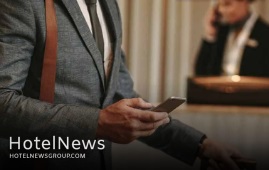
At a time when many of the world’s events continue to be plagued by COVID-19, making plans even a week in advance may seem difficult, much less 10 years into the future. Nearly overnight, the dialogue shifted from “where to for lunch?” to “can you hear me?”. And as hotels emptied out and travel restrictions drag on, many may wonder, where lies the future of hotels? To answer this question, it is first important to recognize that the hotel sector does not exist as an individual silo, but one which forms part of a much wider network: the ecosystem of how we live and work. The cities in which we live today are a reflection of how humans have shaped our environments to fit our social and economic needs. For generations, urban agglomeration had been the standard of cities, and central business districts (CBDs) thrived as we commuted between living in one area and working in another. Accordingly, hotels have typically focused on serving transient international or regional visitors, primarily playing one of two roles: a place to sleep and meet during our business travels, or a place of respite for our leisure getaways. Today, rising interest in (semi-) permanent remote working and a greater desire to live outside of high-density urban areas may signal yet another impending change in the way we live and work. Could deurbanization or decentralization continue on this trajectory – and what would that mean for hotels? In a Cushman & Wakefield webinar, Richard Pickering, Chief Strategy Officer, EMEA and Borivoj Vokrinek, Strategic Advisory and Head of Hospitality Research EMEA from Cushman & Wakefield, traced the paths of how our societies and hotels have evolved, from their very beginnings to where they could be in the future. Blast from the past: The evolution of travel, from immobile to transient lifestyles Since the early days of civilization, the structure of our society has dictated where we lay our heads every night. When humans lived in self-sufficient tribes and settlements, there was no need to travel or sleep anywhere other than in our own beds; while as society progressed, business travel dominated as merchants travelled for trade. And then, with higher disposable incomes, more free time, rising globalization and the internationalisation of trade, there came the birth of mass leisure and business travel. Clearly, humans have become increasingly mobile – and the advancement of technology will only continue to push us towards this trend. Similarly, the role of accommodation providers has also evolved immensely with our changing social and technological landscape. From being a place for shelter and food to becoming a place to meet and then emerging as a provider of experiences, hotels have always evolved alongside our society and the cities in which we live. In today’s context, our ‘social awakening’ has brought rising calls for better work-life balance and a heightened desire to travel and ‘unwind’. To perpetuate this image, hotels have taken on an additional role: a promoter of one’s social status, driven by the growing prevalence of social media. Yet, this evolution will not end there – with our growing mobility, the role of hotels will only continue to expand to meet our transient needs. “There’s no virtual pivot for hotels,” Pickering emphasized. As our society and cities continue to evolve, so will hotels. ‘The variable impact (of COVID-19) on different sectors’ – C&W Webinar Part 1 of 2: Evolution of our cities and what it means for real estate, presented by Richard Pickering. Note: The relative positionings are for illustration purposes only. Swimming against the current – the rise of remote working Our cities of today, however, have been far from perfect, in fact, some may even argue that urbanisation in the developed world has become a myth. “In city centres, centralized demand, when combined with scarce supplies, pushes up rents for businesses as well as housing costs. [Meanwhile,] increasing city sizes means increasing commute times, which reduces free time and worsens pollution – all while our creaking infrastructure amplifies the penalties of distance,” Pickering suggested. It is unsurprising, therefore, to see an increasing number of digital nomads who choose to forego homeownership entirely to traverse the world in search of the much-revered triple-threat ‘office spaces’: stable Wi-Fi, multiple charging points and good coffee. In fact, as Global Workplace Analytics estimates that 25-30% of the workforce will telecommute multiple days a week by the end of 2021, some argue that ‘working from home’ may eventually become ‘work from anywhere’. And with a number of hotels already offering ‘work from hotel’ packages or even subscription services, it is evident that hotels are well-placed to capitalize on this trend. Forward to the future: Super-commuters in a decentralized world. As the idea of remote working with occasional commutes to the workplace gains wider acceptance from both employers and employees, it seems that we are at the tipping point of a new emerging trend: super-commuting. Super-commuters live in one city or country while their office is in another, commuting between the two from time to time – and this will have implications for hotels. “In the future, if more of the workforce is living in remote areas, it is actually likely that they will use hotel accommodation more frequently [for the days that they do travel to the office],” Vokrinek explained. Importantly, increased remote working does not mean a lesser need for meetings and social interactions – rather, the contrary is most likely true. “Not only will employees be living further away and have fewer interactions amongst each other, but clients will also be living outside of cities. So, there would be a need for more structured [and deliberate] meetings, not only on an international scale, but locally and regionally as well – and that will drive demand for meeting facilities in hotels,” Vokrinek suggested. In fact, not only will the role of hotels evolve, but there will likely be a greater need for hotels in the smaller communities that will form in these areas where such super-commuters will typically work from. “Historically, those towns and places were probably mostly residential, with limited [interest from investors] and limited amenities. However, if people will be living in those local hubs on a regular basis and commute less to the central core office, there will be a need for amenities in those local hubs and this will include hotels. Of course, the demand will be softer, so the hotels will probably be smaller. They will need to be more flexible; most likely a hybrid concept within mixed-use developments, [but there will be a need for them”] explained Vokrinek. ‘Hotels within a new eco-system of workspaces’ – C&W Webinar Part 2 of 2: The role of hotels as cities evolve, presented by Borivoj Vokrinek. The who and the why? Towards a new kind of work-life balance Although the notion of such super-commuters forming a considerable proportion of our workforce seems to lie somewhere in the distant future, with the prevalence of low-cost airlines and the advancements of technology, experts speculated, as early as 2014, that there could already be hundreds of thousands of super-commuters worldwide. This decentralization of the workplace is likely to pick up not only because of our increased mobility and higher level of comfort with remote working, but also due to the attractive benefits it may bring to both employees and employers. As Pickering explained, “In a digitally enabled world where distance no longer matters, […] I see a real opportunity for employees to derive labour arbitrage and live a better life” – even taking a small pay cut from a London salary to work from the Greek island of Kefalonia could be well worth the trade-off”. On the flip side, employers may also realize that sourcing the best (and/or cheaper) talent will no longer be bound by geographical borders. And with higher pressure on costs, especially in the short-term, employers too may find themselves increasingly attracted to the lure of allowing super-commuting. The shift, not death of business travel Many soothsayers have begun lamenting the death of business travel, citing the rise of video conferencing and growing realization that not all meetings call for an 8-hour flight and 2-hour layover. However, while the increased usage of video conferencing will undeniably replace some business travel, especially in the short-term, it would be hasty to presume that this would necessarily lead to a significant decline in business travel in the long-term. Rather, as we become increasingly accustomed to living a mobile lifestyle and working remotely, this emerging form of business travel will likely broaden the opportunities for hotels, through catering to the needs of a more decentralized workforce and their clientele. As Vokrinek further suggested, “Some part of the demand will become more regular and predictable, and this will open opportunities for more membership or subscription concepts and increase the importance of loyalty programmes.” Despite the short-term challenges faced by the hotel industry, it is evident that the role of hotels has constantly expanded to meet the new needs of the times – and there is no reason to assume that this time will be any different. Our society is undoubtedly becoming ever more transient, spending more time outside of our homes. But even then, we will still need places to eat, sleep, work and relax. With the rise of remote working, we will likely crave physical interactions and seek places to meet with others more than ever before. Therefore, while the current pandemic has had an indescribable impact on the hotel sector, its long-term implication is that it has catalysed the evolution of how and where we live and work, with hotels destined to play a much bigger role in our increasingly mobile lifestyles and new work ecosystems.
Create: May 6, 2021 Edit: May 6, 2021
Hoteliers, let me ask you a question. What does it mean to run a secure hotel? The answer may vary, depending on who you ask. Why? Because security, across any industry, is a multifaceted discipline and an essential consideration for brands that interact with customer data and information. Cybersecurity attacks are commonplace in today’s world, and hotels are increasingly attractive targets due to their association with a variety of sensitive data. In fact, two of the top five biggest data breaches made public in 2020 were at hotel chains. Globally, cybercrime damages are expected to reach US $6 trillion by 2021. As our industry continues to embrace technological innovation across common touchpoints in the name of enhanced convenience and personalization, we realized the subsequent need for enhanced security protocols. With great power comes great responsibility, and the handling of personal data is no exception. The possibility for personalization is seemingly endless, but so are the associated security risks if hotels don’t take the necessary precautions to fortify their operations. Ironically though, hospitality’s ongoing focus on compliance often obscures the macro-level view of hotel security. All too often, we make the mistake of associating compliance with security when, in fact, they are not synonymous. Adherence to regulatory standards is important, but these standards often fail to account for the increasingly nuanced and ever-changing requirements of cybersecurity initiatives across hospitality. With ten years of former military experience under my belt, I’ve entered IT and cybersecurity with a unique perspective. My former career instilled in me the importance of a detail-centric approach, which I now apply to the world of hospitality regulations and procedures. I understand, intimately, that compliance is the first step – but it isn’t the entire picture. This realization holds even more weight in the pandemic era, a time when hotels are increasingly vulnerable to cybersecurity breaches and risks. A Demand for Security Innovation Historically, the hospitality industry has been slow to embrace technological change. Under the guise of tradition, many hospitality leaders have fallen victim to antiquated ideologies over the years — better known as the “we’ve always done it this way” mindset. Despite this, innovation is, ultimately, undeniable across a landscape that is primarily dictated by guest demands and preferences. However, the rate of change across our industry is often slow, and there is perhaps no better example of this stalemate than hotel tech security. While many aspects of our industry have seemingly ‘caught up’ to other sectors in regards to forward-facing innovation, IT and security have, for the most part, been left in the proverbial dark ages. We see hotels offering their guests an ultramodern experience, rife with next-gen upgrades and platforms including self-service kiosks, smart hotel rooms, AI-powered concierge robots, and keyless room entry. These are incredible advancements. When we pull back the curtain to view the policies and procedures at work behind the scenes, we realize a stark contrast. A robot concierge at a given hotel might know your name and seamlessly address your requests once you arrive on the property. However, that same hotel will probably still require you to manually fax or email a credit card authorization form. As an industry, we are making strides forward, but we have – for the most part – left core security considerations behind. To this effect, many of the hotel security breaches that dominated headlines involved hotels that were, in fact, compliant in terms of regulatory standards. These breaches often compromised point of sales systems that, despite complying with current industry standards, exposed guest credit card information in a way that put guests and hotel reputations at risk. Hotel Security for a Post-Pandemic World When considering the scope of hotel cybersecurity, it’s important to recognize that credit card theft is only one of many risks. Our industry relies on the exchange of large amounts of sensitive personal information, and the post-pandemic innovation and automation poised to spearhead hospitality’s recovery will, ultimately, thrive on guest data. As we look to a future of keyless room entry, AI-powered touchpoints, and high-tech self-service, we must consider the enhanced security required by increasingly interconnected hotel systems. Reports indicate that the more devices connecting to a network, the more vulnerable it is to cyberattacks. 513,936,296 hospitality data records were stolen or lost in 2018. In early 2020, 5.2 million guest records were compromised in one hotel chain breach 423 million travelers have been victims of a cyberattack through their business with hotels 70% of guests believe hotels don’t invest enough in cybersecurity protection Moreover, we must acknowledge the current state of the hospitality workforce. As our industry prepares for recovery after a period of severe downturn, we will welcome many newcomers to our industry in addition to restricted staffing due to limited post-pandemic budgets and cost-saving initiatives. New talent is welcome, but hotels should be increasingly cognizant of IT and cybersecurity training and awareness for all new and returning staff. After all, 95% of all data breaches can be traced to human causes. With this in mind, comprehensive cybersecurity training should be prioritized at every level of any organization. In fact, hotels should take this time to audit and, potentially, reinvent their cybersecurity best practices. Not only should risk assessments be performed every year, but they should also be performed every time a hotel implements a new solution. This may seem tedious initially, but dealing with the costs and reputational repercussions of a large-scale cybersecurity breach is far more taxing. Now, more than ever before, hoteliers must look beyond compliance to consider big picture hotel cybersecurity. Identifying any and all opportunities for risk is the only way to defend against it, and data security should be embedded into the very culture of a hotel. The more you educate your employees, the less likely they are to become the victim of a breach or attack.. In the post-pandemic world, creating a truly secure environment demands a diverse and increasingly detail-oriented approach to managing and protecting sensitive information.
Create: Apr 19, 2021 Edit: Apr 19, 2021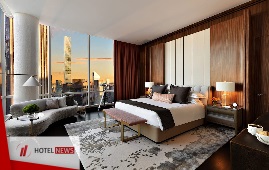
Technique 181 Understand When to Mention Your Hotel’s Name When Responding to Consumer Blogs; When responding to a negative online review, the name of the hotel should never be mentioned in the response. Con- versely, when responding to a positive online review, the name of the hotel should always be mentioned in the response. Technique 182 Understand When to Use “I” or “We” When Responding to Consumer Blogs; When responding to a negative online review, the hotel manager should use ‘I’ in the online response (e.g., ‘I will look into this issue’). The use of the word “I” signals owner- ship of the problem and resolution. On the other hand, when responding to a positive online review, the manager should use ‘we’ to spread the credit among the staff (e.g., ‘we are very glad that you enjoyed your stay’). Technique 183 Paraphrase the Problem When Responding to Negative Consumer Blogs; When responding to a negative online review, the hotel manager should paraphrase the guest’s concern in the online response. Such paraphrasing communicates to all those read- ing the response that the hotel has good listening skills. Technique 184 Include a ‘Relate’ Statement When Responding to Negative Consumer Blogs; When responding to a negative online review, the hotel manager should attempt to include a statement detailing how s/he can relate to the problem being communicated by the guest. Including a ‘relate’ statement communicates to all those reading the response that the hotel is empathetic to guests’ concerns. Technique 185 Require One New Idea Per Week; At every weekly management meeting, one manager should be required to share an innovative idea with the group that has never been attempted in the hotel. Technique 186 Graph Guest Problems According to Frequency and Seriousness; Guest problems should be tracked and plotted on a graph according to their frequency and seriousness. A cross-depart- mental team of 6–8 line-level associates and managers should be created to derive strategies for fixing the most pressing problems based upon frequency and/or seriousness. Technique 187 Text Mine Consumer Blogs for Trends; Hotel management should contract with a 3rd party ven- dor (e.g., Revinate) so that consumers’ blog postings can be analyzed for trends. Many of these 3rd party vendor products also enable management to monitor trends in competitors’ blog postings. Technique 188 Data Mine the Centralized Reservations System for Trends; Hotel management should data mine its centralized res- ervation system to identify non-obvious patterns and trends in guests’ habits and preferences. The results of such data mining can be used to better serve guests, but also to build an enhanced understanding of proper timing and placement of marketing messages. Chain affiliated hotels likely already have data mining services available to them. Managers at inde- pendent hotels can be taught some basic data mining func- tions by a consultant. The extent of data mining capabilities offered by 3rd party management companies appears to vary widely across the industry. Technique 189 Utilize the Front Desk as a Listening Post; Front desk associates should consider their work area a “listening post” from which they can overhear conversations between guests. Many guests may be reluctant to actively voice complaints to hotel staff, but discuss various issues among themselves (e.g., the ice machine was too noisy; the sidewalks leading to the parking lot were too icy). Such information should be entered into the logbook and denoted as “listening post feedback.”
Create: Sep 5, 2020 Edit: Oct 18, 2020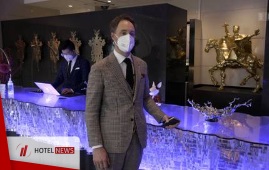
Technique 176 Maintain a Clutter-Free Office; All managers should keep their offices impeccably neat and orderly because doing so subconsciously signals the importance of cleanliness and attention to detail to associates. Technique 177 Keep a Log of Guest Requests; A culture must be fostered in which it is apparent to both guests and employees that management cares about guests and their requests. All guest requests should be followed up on. A good way to do this is to create a log (example below). Not only does this log help ensure follow-up, but it gives the manager an opportunity to review requests and see if there are consistencies so these issues do not continue to occur. Technique 178 Be Visible and Converse with Guests; Most guests appreciate meeting and conversing with managers. Managers should make it a point to either assist with check-ins or roam the lobby during peak check-in or check-out. Conversations with management help personalize the check-in/check-out process. Such interactions also often uncover leads for new business and set a good example for the associates regarding the importance of interactions. Technique 179 Display Attention to Detail by Cleaning the Floor; All managers should pick up lint and other small specks of debris as they move through the hotel’s public areas. While very small items on the floor are likely unnoticeable to most guests, picking them up signals attention to detail to associates. Technique 180 Invite a Consultant to Hold Guest Surprise Clinics with Associates; Hotel management should invite a consultant to the hotel to conduct a guest surprise clinic with associates and manag- ers. Facilitated by the consultant, the clinic would span two hours and would involve associates and managers collectively brainstorming free/inexpensive ways to surprise guests. Man- agement’s participation in the clinic would signal their com- mitment to the associates. The consultant could repeat the clinic in the am and pm to maximize associate and manager participation.
Create: Aug 25, 2020 Edit: Sep 29, 2020